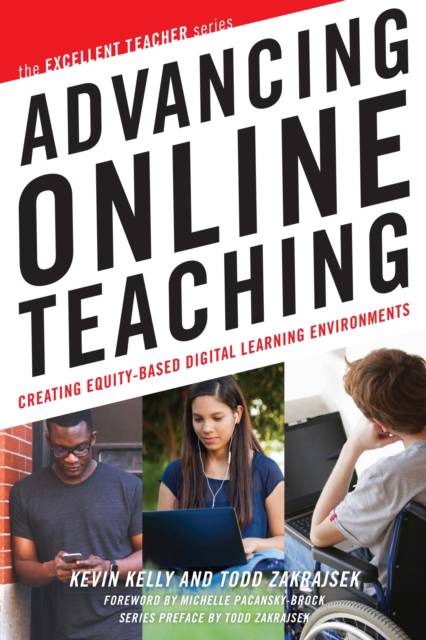
- Afhalen na 1 uur in een winkel met voorraad
- Gratis thuislevering in België vanaf € 30
- Ruim aanbod met 7 miljoen producten
- Afhalen na 1 uur in een winkel met voorraad
- Gratis thuislevering in België vanaf € 30
- Ruim aanbod met 7 miljoen producten
Advancing Online Teaching
Creating Equity-Based Digital Learning Environments
Kevin Kelly, Todd D ZakrajsekOmschrijving
The goal of teaching online is fundamentally the same as teaching face-to-face: facilitating the learning of all students to the greatest extent possible.
This book differs from other books on online teaching in that, in the process of offering guidance on course design and planning, developing outcomes and appropriate engaging activities, managing the workload and assessment, the authors pay explicit attention throughout to the distinct and diverse needs of students and offer effective strategies to accommodate them in a comprehensive and inclusive way by using the principles of Universal Design for Learning. By following those principles from the outset when planning a course, all students will benefit, and most particularly those whom the research shows have the greatest achievement gaps when taking online courses -- males, first generation and low income students, those from underrepresented minority groups, the academically underprepared, students with disabilities, and those with limited online access or lacking readiness for online learning. Beyond good planning and design, Kelly and Zakrajsek offer ideas for creating inclusive course environments and activities, such as using culturally appropriate content and making it accessible in multiple formats. They also share methods to foster faculty-learner interaction and increase personal connections with students, and among students, through group activities or learning communities, which are so critical to motivation and success.
Faculty new to online teaching as well as more experienced readers will find a wealth of practical guidance on developing and honing both fully online and blended courses and, as importantly, a wealth of proven ideas to help the new generation of students with diverse needs to succeed.
Specificaties
Betrokkenen
- Auteur(s):
- Uitgeverij:
Inhoud
- Aantal bladzijden:
- 264
- Taal:
- Engels
- Reeks:
Eigenschappen
- Productcode (EAN):
- 9781620367216
- Verschijningsdatum:
- 11/01/2021
- Uitvoering:
- Hardcover
- Formaat:
- Genaaid
- Afmetingen:
- 152 mm x 231 mm
- Gewicht:
- 517 g

Alleen bij Standaard Boekhandel
Beoordelingen
We publiceren alleen reviews die voldoen aan de voorwaarden voor reviews. Bekijk onze voorwaarden voor reviews.











